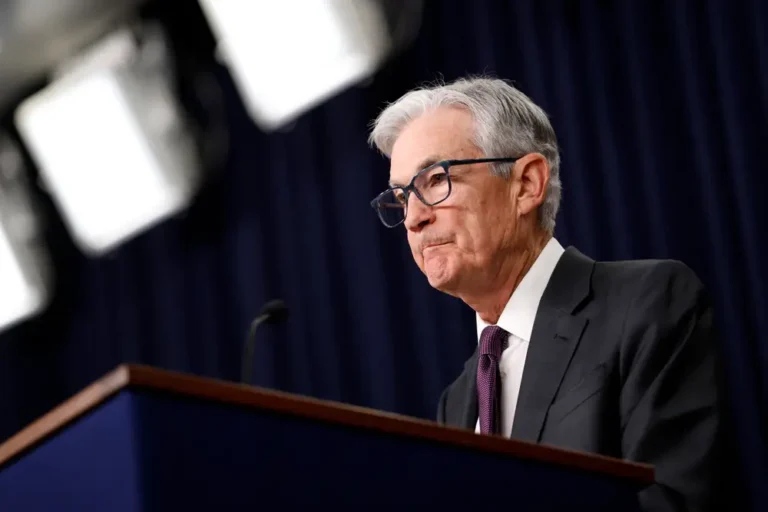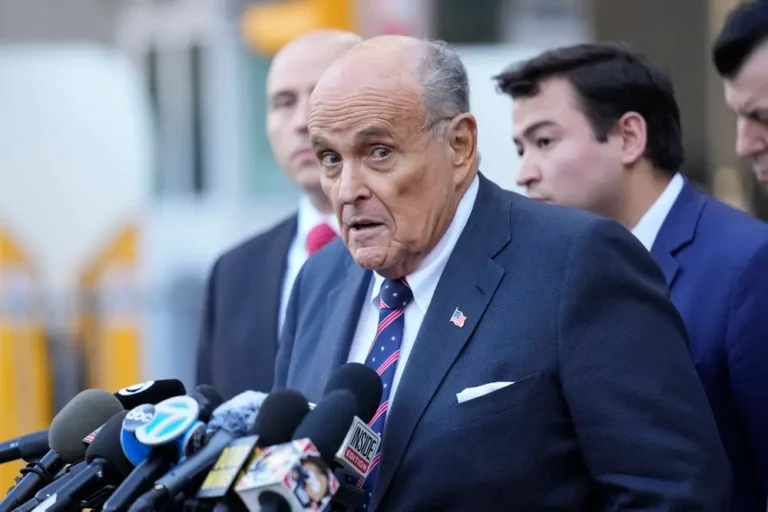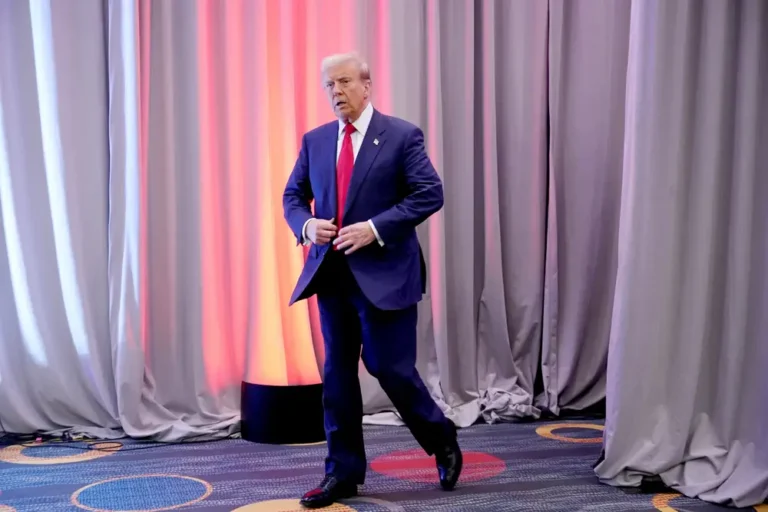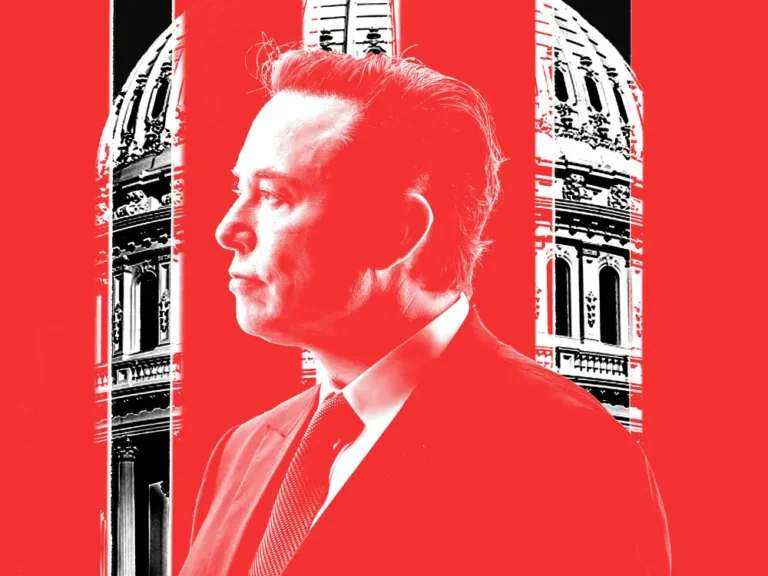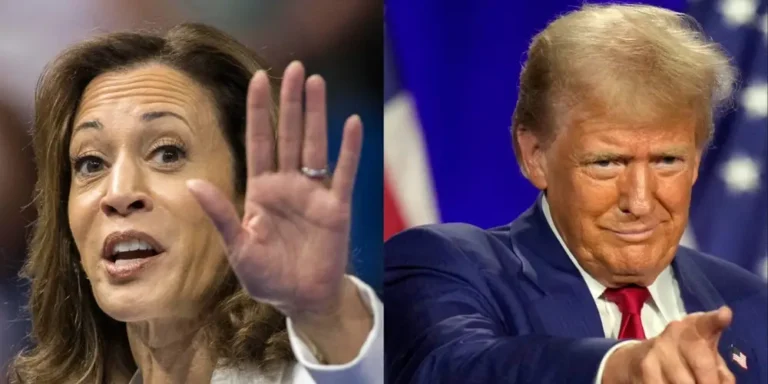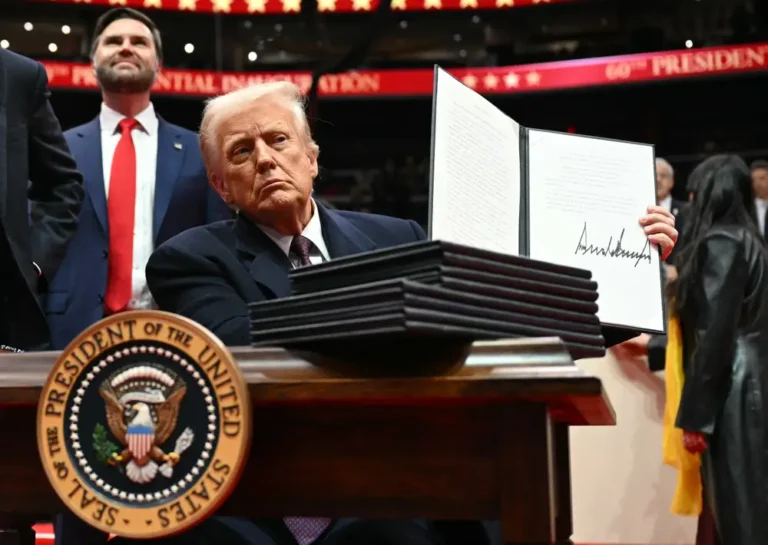Everyone loves AMLO, but will they love who comes next?

On a Saturday afternoon in early July, Mexico City’s vast Zócalo square was packed with supporters commemorating the fifth anniversary of Andrés Manuel López Obrador’s election to the presidency.
Few political leaders can muster such zeal, let alone in the final year of their term. Even less can they expect the world to have shifted their way, from globalization to domestic self-sufficiency, bolstering the economy and lending legitimacy to policy choices that were previously dismissed as idiosyncratic.
But that is where López Obrador finds himself as he enters the final year of his single six-year term and seeks to leave a lasting impression on Mexico. Despite widespread criticism, ranging from his failure to reduce violent crime in Mexico to a focus on irrational personal projects and an energy policy that excludes investors, the president enjoys a near-60% approval rating, which will help his Morena party in next year’s elections.
AMLO, as the president is known to many Mexicans, is Morena, and ensuring his project lives on in the party after he leaves the political stage is critical. However, as Morena prepares to unveil its lead candidate on September 6, unexpected complications for the 69-year-old president’s efforts to secure his legacy are emerging.
AMLO’s popularity stems in large part from his central platform of fighting corruption and creating opportunities for the poor, laced with attacks on the powerful “oligarchy,” which he refers to as the “Fourth Transformation” after three previous pivotal moments in Mexican history dating back to the war of independence in 1810. It’s one that attendees at the July 1 commemoration said they want to see continue after he leaves office.
“He cares about everyone, from the kids to the old people,” said Lucely del Carmen, 57, who traveled to the capital for the event from her hometown of Pocboc on the Yucatán peninsula, where she raises chickens and pigs and sells traditional foods like tamales with her husband. “We want to see the transformation continue,” she said, “because six years isn’t long enough.”
Even a few months ago, it appeared a safe bet that whoever won Morena’s top job would sweep to the presidency simply by being AMLO’s heir. Former Mexico City mayor Claudia Sheinbaum and former Foreign Minister Marcelo Ebrard have spent the last few weeks touring the country touting their credentials as the best choice to carry on AMLO’s legacy. Neither has the president’s charisma or public appeal, but both benefit from his party’s reach, which holds 23 of Mexico’s 32 governorships with its allies.
However, a challenger has emerged in recent weeks. The opposition coalition devised a similar procedure to select their own coordinator, and the most buzz is surrounding lawmaker Xóchitl Gálvez, a businesswoman-turned-politician of Indigenous descent.
Gálvez is making a national impact by playing AMLO at his own game, with stunts like showing up to his morning press conference with a judicial order demanding the right to respond to his criticisms, and chaining herself to Senate furniture to protest the stifling of the freedom of information agency. She is known for riding her bike to the Senate rather than taking a private chauffeur, and she frequently mocks the president for being a “macho” afraid of “strong women.”
While polls show Gálvez is still too far behind the Morena candidates to pose an immediate threat to AMLO’s succession plans, she has garnered a lot of attention and is closing the gap, prompting analysts to warn that her folksy appeal could cost Morena key congressional seats. This would have a significant impact on the next president’s ability to pass legislation — AMLO has already felt the impact of a diminished force in Congress following Morena’s loss of seats in midterm elections.
According to a person close to the president who requested anonymity in order to discuss his thoughts, AMLO is unconcerned about the opposition’s chances in the upcoming elections. Furthermore, Gálvez must still compete in her own primary on September 3 in order to be considered for the presidency. Nonetheless, AMLO has repeatedly chastised Gálvez for being a “oligarchy’s pick,” making her a target of his daily three-hour press conferences in which he discusses everything from his administration’s weekly victories to musings on baseball, music, and other current pop culture topics.
To some extent, the rise of a candidate like Gálvez, who grew up in a poor community in central Mexico selling tamales and Jell-o, would not have been possible without AMLO’s precedent. Presidents can no longer fly on private jets and brag about their lavish lifestyles. AMLO has been seen flying coach after selling the presidential plane at a loss to fund hospitals.
“Mexicans are used to presidents like Enrique Pea Nieto, who was either holed up in his office or out on the golf course, with an actress for a wife.” People couldn’t relate,” said Gerardo Esquivel, a former deputy governor of the central bank under AMLO. “President López Obrador is someone who people want to take photos with.”
AMLO is the most relatable leader the country has had in decades, according to his supporters. Others are baffled by the president’s appeal in the aftermath of policy quirks that appear to turn conventional political wisdom on its head. His lavishing aid on national oil company Petróleos Mexicanos appears to contradict his refusal to spend during the pandemic; his reluctance to travel overseas, except to the United States, risks undermining Mexico’s international standing; and his populism can come across as aggressively nationalistic and anti-business.
As he nears the end of his presidency, AMLO discovers that the world has begun to resemble him. Russia’s invasion of Ukraine demonstrated that the world still requires fossil fuels, and his priority of Mexico comes at a time when self-sufficiency and resilient supply chains are the new normal. The competition between the United States and China has benefited Mexico’s economy, as the trend toward near-shoring has brought companies such as Tesla Inc. south of the border. As food security became a top priority on the global agenda, he sought to defend domestic corn production while picking a fight with US farmers, claiming he didn’t want Mexicans to eat genetically modified corn.
According to a former government official who requested anonymity, his emphasis on domestic politics resonates with those who believe globalization has failed. According to the official, the global shift toward more nationalistic views has helped him fit into the current moment after decades of pursuing these ideas.
According to Carolina Muoz Canto, politics professor at the Colegio de Tlaxcala in San Pablo Apetatitlán, who wrote her doctoral thesis on AMLO before he won the presidency, this trend was accentuated during the pandemic, when the key response came from governments rather than political blocs.
“There seemed to be a return to the nation-state as the basic entity that could provide assistance and give the population a certain amount of security,” she said. “The language of López Obrador connects to this questioning of political blocs and the return to the nation-state,” she said, adding rhetoric about achieving oil and food independence.
AMLO claims that his government’s strategy is simple: fight corruption. “This is fundamental; the rest is an afterthought,” he said at a press conference on August 1. Corruption, he continued, was more than a pandemic; “it was a pest devastating everything.”
According to Adriana Báez Carlos, politics professor at the National Autonomous University of Mexico, he swept to power in December 2018 at a time of general discontent among the population with the political class and institutions, much of it related to corruption, while low to near-zero economic growth perpetuated inequality.
He capitalized on that sentiment and made it his own, as a result of which all Morena candidates intend to follow his lead, while the opposition must pay attention to his style and focus. “It’s clear that people want more attention, and that needs to be considered,” she said.
Whoever succeeds him will have a difficult task ahead of them. He is leaving an economy that is expanding, with the peso strengthening to an eight-year high and investment flowing in, buoyed by the country’s proximity to the United States. He increased pensions and labor rights, while Congress increased vacation time and discussed shortening the work week. Unemployment is at an all-time low, the minimum wage has increased exponentially, and approximately 30 million families receive cash transfers.
“After so many years of seeking a change, it’s finally here,” said Roberto Zaldivar, 78, of Mexico City, who attended the Zócalo event in July with his wife, daughter, two sons, granddaughter, and nephew. “We really want the transformation to continue.”
Critics call it a campaign ploy, or a rewriting of previously announced aid programs. According to Bloomberg Economics’ Felipe Hernández, AMLO’s salary policies helped boost household income and domestic demand, but his overall record is one of wasted potential, owing primarily to his nationalist rhetoric. “You could say that the economy did relatively well during his administration, but it could have done significantly better,” Hernandez said.
What is certain is that he is leaving a worsening fiscal outlook for his successor, and as popular as AMLO is, his polling in economic performance and security is negative, posing an electoral risk for Morena. But, behind closed doors, even bankers and top investors who disagree with his policies admit that AMLO has had an impact on Mexican society by improving labor conditions and increasing handouts to the elderly.
“His diagnosis of the country was correct,” said Esquivel, who claims that the earnings gap between the richest and poorest Mexicans has narrowed, in part because the least affluent households’ incomes have increased by about 20%. “He’s kept his word.”

